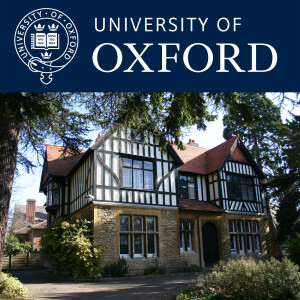
Illiberal Liberals and the Future of Dictatorship in Egypt
 2020-11-10
2020-11-10
Download
Right click and do "save link as"
Dalia Fahmy (Long Island University) editor of Egypt and the Contradictions of Liberalism: Illiberal Intelligentsia and the Future of Egyptian Democracy (2017), gives a talk for the Middle East Centre Friday Seminar Series. This talk will address the dictatorship syndrome specifically through the lens of liberalism in Egypt. It will seek to address why a particular denomination of Egyptian liberalism, despite at face value being wholly opposed to dictatorship, ultimately proved susceptible to the allures of the dictatorship syndrome in the aftermath of the events of 2013 in Egypt.
Also on the panel is Daanish Faruqi (Duke), editor of Egypt and the Contradictions of Liberalism: Illiberal Intelligentsia and the Future of Egyptian Democracy (2017) Chaired by Dr Usaama Al-Azami (Faculty of Oriental Studies, Oxford)
Dr. Dalia Fahmy Bio:
Dr. Dalia Fahmy is Associate Professor of Political Science at Long Island University and Senior Non-Resident Fellow at the Center for Global Policy in Washington DC. Dr. Fahmy's books: “The Rise and Fall of The Muslim Brotherhood and the Future of Political Islam” (undercontract), and co-edited volumes “Arab Spring: Modernity, Identity and Change,” “Illiberal Intelligentsia and the Future of Egyptian Democracy,” and “International Relations in a Changing World”, cover her research areas.
Daanish Faruqi Bio:
Daanish Faruqi is currently a Visiting Scholar at the Center for the Study of Genocide and Human Rights (CGHR) at Rutgers University, and a doctoral candidate (ABD) in History at Duke University. A scholar of Middle Eastern and Islamic history, with a particular emphasis on Islamic political thought, he had previously spent several years in the Arab Middle East as a researcher and journalist, which gave rise to two books, most recently Egypt and the Contradictions of Liberalism: Illiberal Intelligentsia and the Future of Egyptian Democracy (co-edited with Dalia F. Fahmy). His work straddles between classical and contemporary Islamic thought, with a particular emphasis on the Maghrib region on the one hand and on the Levant on the other hand. Most recently his work investigates transnational politically activist strands of Sufi mysticism, tracing their diasporic origins in the colonial Maghrib to their ultimate migration to late-Ottoman Syria, to their most recent role in the 2011 Syrian revolution.
A recognized subject matter expert, Faruqi has given talks and symposia on his research at the UCLA Law School, Georgetown University, the National Press Club, and other institutions. Additionally, he is a frequent journalist and commentator on the politics of the Middle East, having published in Al Jazeera English, Foreign Policy, CommonDreams.org, USC-Annenberg/Religion Dispatches, among other media outlets.
view more
More Episodes
The Tinderbox documentary film discussion
 2021-04-20
2021-04-20
 2021-04-20
2021-04-20
Libya: Past, Present and Future
 2021-03-09
2021-03-09
 2021-03-09
2021-03-09
The Place of Religion After the Uprisings
 2021-02-26
2021-02-26
 2021-02-26
2021-02-26
012345678910111213141516171819
Create your
podcast in
minutes
- Full-featured podcast site
- Unlimited storage and bandwidth
- Comprehensive podcast stats
- Distribute to Apple Podcasts, Spotify, and more
- Make money with your podcast
It is Free
- Privacy Policy
- Cookie Policy
- Terms of Use
- Consent Preferences
- Copyright © 2015-2024 Podbean.com




